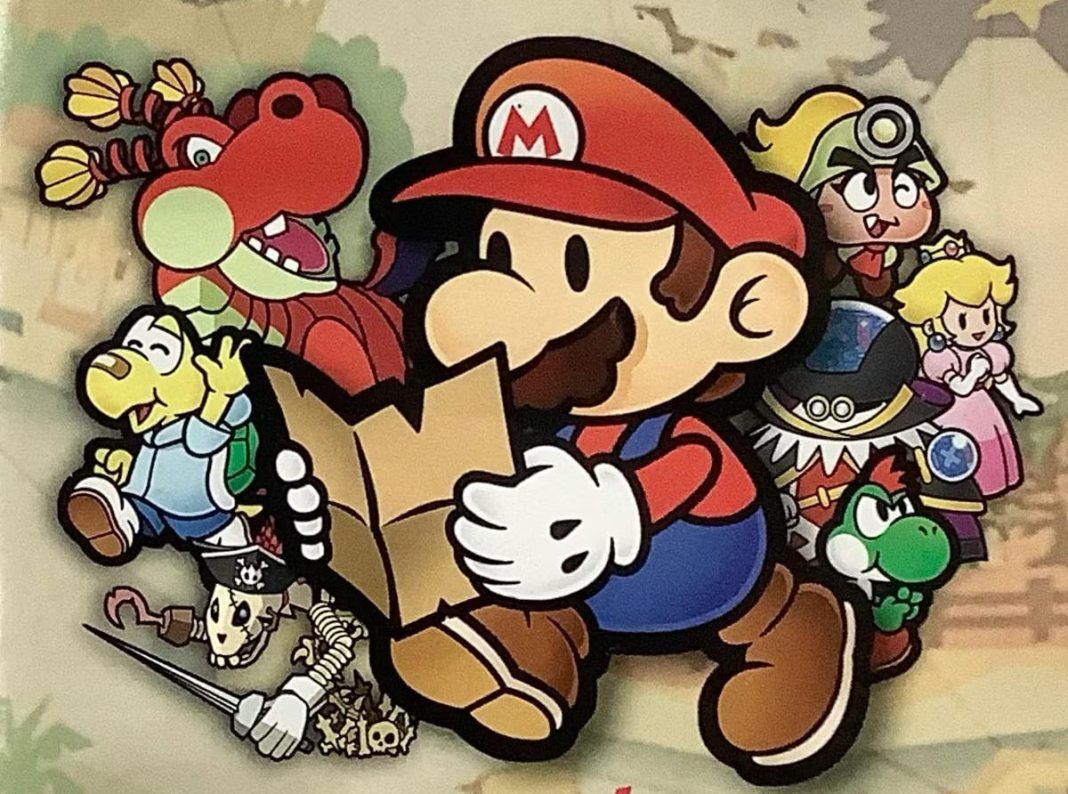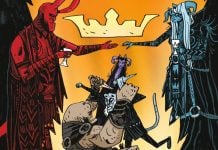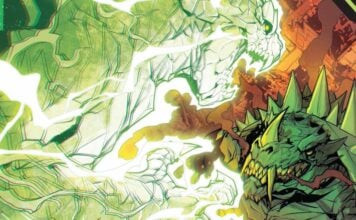By E.B. Hutchins
When I was ten years old, I made the decision that would change my life forever. I was a precocious child, reading books I had no business reading with no one telling me to stop. One day, I was reading through one of my aunt’s encyclopedias when I happened upon the word “cartoonist”. I didn’t know the breadth of what that meant, but I knew it was my future.
I had just finished playing Paper Mario: The Thousand Year Door, a game that I had kept the Game Informer ad page in my pink plaid purse for months. On my tenth birthday, I received the game from my aunt on her black couch. Over the next year, it would change my life. By the time I made it to the end of Chapter 3 in that game, I made the decision to spend the rest of my life as a storyteller. I didn’t know how I’d do it or what I’d do, but I was going to make it as a storyteller.
At 12, I was given the manga Kamichama Karin and Shugo Chara, and found my answer. I had spent my earlier years reading the funnies in the newspapers my uncle always brought in whenever I’d visit my aunt’s. I was reading Captain Underpants and making my own Flip-o-ramas in the school notebooks my mom bought for me (sorry, Mom). However, reading manga made it click for me. I wanted to make comics, I just needed to find a way to do it. Over the next year, I’d use my notebooks to construct long elaborate stories and give them to my friends to read in the half an hour before middle school started. When I was out of paper, I would use computer paper and staple it together into makeshift “chapters” for them.
During all this, I would read comics voraciously. Manga, graphic novels, floppies, you name it. I would study them and write notes in my sketchbooks about them until after graduating college. I spent my high school years making comics in between my work as a library aide. I wanted to be published. By who? Who knows, but I wanted to be published. More than anything, I wanted to contribute to the industry I loved so dearly.
However, over the years, the industry changed. Some good, like the advent of Kickstarter and the crowdfunding renaissance of the 2010’s, and some bad like the impact that Gamergate had across all nerd culture. I won’t relitigate Gamergate and its off-shoots here, but what I will say is that the damage has been done. Little did I, or most Americans know, that the same kinds of people who were screeching about “ethics in games journalism” would end up designing the policy that’s in the White House.
I have written twice about the state of publishing when it comes to book bans. I thought (wrongly) that with an incoming Harris administration we would be able to put this whole thing behind us and the bans would stop. That the moment that this country would have federal mandates against diverse books would never arrive.
Well, it’s here.
The War of Books is here. With the gutting of the ILMS, the banned word lists for research institutions and the attacks on major law firms, The Trump administration is making it clear that it’s “waging a war on DEI”. It wants books, research, college programs, students and faculty across the nation to bend the knee or get shut down.
The Trump administration is erasing the images, books, and works, past, present and future of all marginalized communities. NASA removed a comic about the first woman to go to space, This is the modern burning down of the Institut für Sexualwissenschaft (The Institute of Sexual Sciences) of 1933. The time for pithy, flowery, euphemistic language is over.
This essay will be a bit different from the other two I have written about book censorship and Project 2025. Those essays were directed to smaller indie comic creators. However, this essay is directed at publishers in the industry at potentially great personal and professional cost.
So here goes.
As mentioned before, the War on Books is here. The IMLS is being gutted as we speak, with employees being furloughed and laid off. The publishing world is mostly responding with this with the gravity it needs. The American consumer is watching the economy crash into the ground due to tariffs and inflation. The high from 2020/2021’s sales numbers is about to be over.
I understand that the tariffs will mean that the publishing industry’s books will be tighter. The increase from 2020/2021 book sales that launched the industry to nearly 2 billion dollars a year is starting to cool off and settle into a new plateau for the industry. I fully anticipate that all the tariffs impacting major countries in the publishing space (like Japan, Canada and France) will cause the industry to not just slip like it did in 2023 but tumble in 2025. At time of writing, the stock market is in a state of extreme volatility.
This is all to say that publishing houses will be less willing to take a gamble on experimental boundary pushing projects. Imprints will close down. However, books about BIPOC, LGBT, and disabled people are not “boundary-pushing” and books on abortion are not “experimental”. They are necessary. Now is not the time to capitulate to a demagogue and his merry band of bigots. There is blood in the water and it’s time to make sure everyone gets on the boat. We still need projects to be greenlit that feature everyone of us.
I understand that there will be legal challenges. If history serves us correctly, it will be from a small group of people who are way too invested in other people’s business. Do not give in to them. They–this vocal minority–are high of the “wins” of cancelling DEI measures and gutting federal programs. There are human and financial costs to giving into this administration. Target lost 40 percent of its stock value for rolling back its DEI measures, and students are turning down acceptance letters to Columbia for deporting their students.
There are millions of people across the country that have shown up in support of the government keeping their hands off of everything we hold dear, be it reproductive rights, LGBT rights, BIPOC rights, etc. The majority of the country believes that writing and including the perspectives of different people is a net good.
All in all, I understand that times will be tough. The industry is reckoning with what we will be and what we will become. As a creator and a reader, I am hoping (along with many others) that will include BIPOC, LGBT and differently bodied people.
E.B. Hutchins is an Ignatz Award-nominated cartoonist who makes sapphic comics and writes for Cartoonist Co-op. She is on BlueSky.









